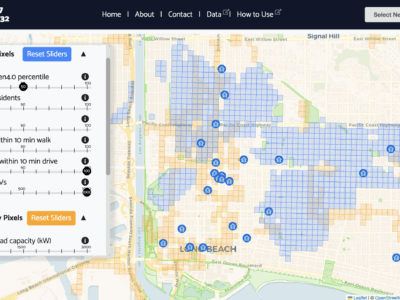Not-horrible climate polling news
Yes, it’s been a bad few months for climate science, as Ann wrote. And it also hasn’t been great for Congressional climate politics. But, finding hope where I can, I’ll seize on some good (or — at least not terrible) polling news about US support for climate action.
Last week, the Yale Project on Climate Change released its latest poll results assessing Americans’ attitudes on climate change issues — this one focusing on support for domestic climate and energy policies. Thanks to It’s Getting Hot in Here and Jonathan Parfrey of Green LA Institute for this summary of poll results:
Despite the recent drops in public beliefs and concern about global warming, a large majority of Americans—regardless of political affiliation—support the passage of federal climate and energy policies. These include support for:
- Funding more research on renewable energy, such as solar and wind power (85 percent)
- Tax rebates for people buying fuel-efficient vehicles or solar panels (82 percent)
- Establishing programs to teach Americans how to save energy (72 percent)
- Regulating carbon dioxide as a pollutant (71 percent)
- School curricula to teach children about the causes, consequences, and potential solutions to global warming (70 percent)
- Signing an international treaty that requires the U.S. to cut emissions of carbon dioxide 90% by the year 2050 (61 percent)
- Establishing programs to teach Americans about global warming (60 percent).
Surprisingly, majorities of Republicans and Democrats support many of these policies, including renewable energy research, tax rebates, regulating carbon dioxide, and expanding offshore drilling for oil and natural gas. Further, majorities in both parties support returning revenues from a cap-and-trade system to American households to offset higher energy costs, perhaps opening a pathway for Congressional action.
Sixty percent of Americans, however, said that they have heard “nothing at all” about the cap and trade legislation currently being considered by Congress. Only twelve percent had heard “a lot.”
When cap and trade is explained, 58 percent support the policy, but this support drops to approximately 40 percent if household energy costs increase by $15 a month, or 50 cents a day. Sixty-six percent support cap and trade, however, if every household were to receive a yearly bonus of $180 to offset higher energy costs.
I’ll note that it’s far from all rosy news: The percentage of respondents who believe “global warming” should be a very high or high priority for the President and Congress dropped dramatically between 2008 and 2010, from 54 to 38%. But “developing sources of clean energy” fares much better, with 60% of respondents ranking this priority “very high” or “high”. And the fact that 60% of respondents have also heard “nothing at all” about a cap-and-trade bill suggests, to me, that there’s still plenty of room for good branding and messaging.
So, can we get cracking on a clean energy and jobs bill in the Senate?







Reader Comments